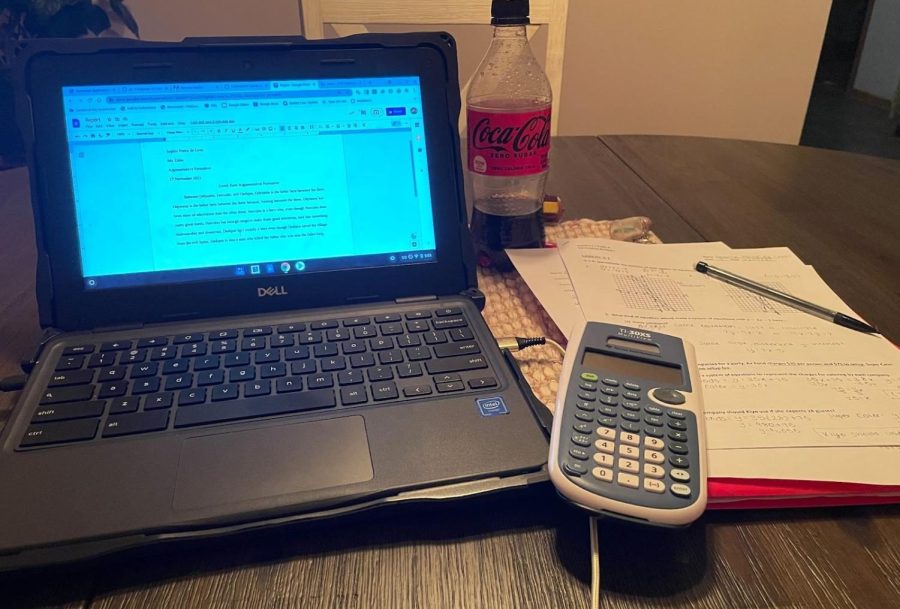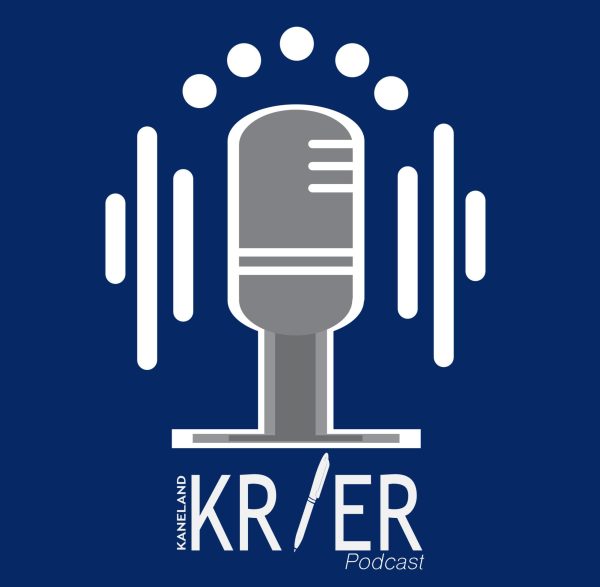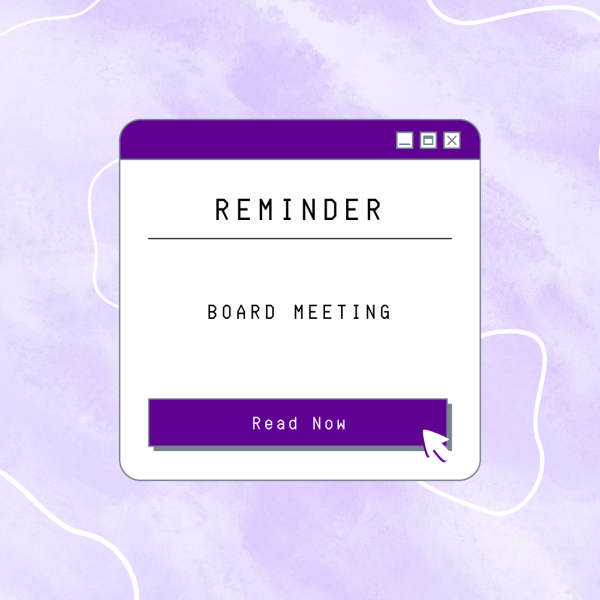Procrastination: Everybody does it, but can we avoid it?
Photo By Sophie Ponce de Leon
Many students find themselves getting their homework and essays done in the evening after a long day of school. Oftentimes, students don’t get to do their schoolwork until late at night – and sometimes not at all – due to procrastinating, work obligations or extracurricular activities.
No one enjoys coming home from a long day at school knowing that you have multiple pounds of homework waiting for you. Especially when you already did enough work during the school day with multiple worksheets and difficult tests. The dreadful idea of having to get all of your homework done before the first period the next day can be difficult and frustrating if you have better things to do or just are not in the right mindset. But putting things off doesn’t have to be something we all do constantly, it can be something that we try to avoid.
Procrastination is something that we all go through, right? It’s when we sit at a makeshift desk and organize the mess that we call homework. A Chromebook on low battery is laid out in front of us, pencils and pens are littered everywhere and papers that are from every class are in a jumble of information that we can’t bother to organize. We lie to ourselves that we are going to sit on this comfy chair, and we are going to do our work. But, instead, we always scroll through Snapchat or Tik Tok as we can’t resist the urge to check up on what society has in store for us. Essentially, that is what procrastination is. The idea of pushing things back and not getting them done. Senior Amanda Mederich often goes through the same thing.
“Most of the time after cross country practice, I’ll be so exhausted from running I’ll go home and relax instead of doing homework and chores,” Mederich said “I’ll sprawl out on the couch drinking chocolate milk while I contemplate the other productive activities I should be engaging in,”
Sometimes, Mederich will just scroll mindlessly through social media for hours like what the rest of us do. According to edutopia.org, about 90 percent of teens from the ages of 13-17 use social media and spend almost nine hours a day scrolling through the different social apps. It’s not uncommon for students to spend most of their time on social media instead of doing homework. It’s just a valuable option for our curious yet avoiding minds.
Most of the time, Mederich will adopt the mindset of “‘due tomorrow’ which means ‘do it tomorrow,’” she said. This mindset isn’t particularly healthy for a teen to adapt to though, as it can lead to cramming.
Cramming often results in poor test grades or mediocre results in homework or feedback from projects. But it could also result in just normal grades since we don’t know what type of cramming would affect us until the exact moment the test is laid out in front of us with a blur of questions awaiting answers.
The idea of cramming doesn’t just affect grades though it could also affect your mental self and make you so stressed you want to pull out your hair in frustration. Or you just get less sleep and become exhausted on the morning of the test. Our emotions are always varied between the different types of stress we get.
Freshman Nick Casey, like almost all of us, goes through cramming with some sort of consequence.
“I often end up cramming in most of my studying until the day before, or even the day of the summative,” Casey said.“I think with this cramming, I often get less sleep, and my overall mental health is worse,”
According to psyychologicalscience.org, cramming is essentially trying to stuff a whole load of information into your mind, usually short-term memory, for an upcoming exam that you forgot to spend time on. This has been proven to increase stress levels and can lead to panic and anxiety, making it a lot harder to take in information.
Cramming is a product of procrastination. It is something that has seemed to stick in our minds like a parasite sucking away our attention spans and causing us to suffer slowly.
Mederich described the consequences as a “tidal wave of an overwhelming fear of failure.” No matter how you try to stand up on solid feet, you have the wind knocked out of you by another wave and find yourself back to where you started.
And it seems that we all are subject to those consequences many times in our lives. But, as we all know, if there is a problem, there is always some sort of solution. It always has a way of helping.
But to figure out how to beat it, you have to find out why it happens and where it happens, right?
Casey stated that he thought it had to do something with difficulty in different levels of classes. Certain classes are always a struggle more than others, so when it is time to do homework from those classes, it is more of a struggle because it is a class that you find more difficult than others.
The difficulty between classes is something that we all have within our schedules. We all have that one class where we all sigh, and think, “I don’t want to be here,” and, “This class, again?” And when we get the homework or hear that we have a test for that class, we don’t put that much effort into it since it’s a class that we could do without.
Instead of sitting down, taking out our heavy Chromebooks and smooth pieces of paper with our handwriting, we sit down and take out our phones, and go through Snapchat or we turn on the TV to see the latest episode of our favorite show.
We all see procrastination as a way of escape from the reality of obligations as we do it intentionally. But, after finally knowing the source of it, we can all finally try to find a possible solution to the endless war of mindless combat.
Senior Davina Olson pointed out that procrastination doesn’t always need to be something that we seek out or something that we always look at on the bad side.
“I think it’s important for students to know that procrastination doesn’t have to be a bad thing,” Olson said. “Don’t stress over schoolwork when you have other things to focus on, like sports, clubs and work. As long as you can manage your time properly, procrastination can honestly be an efficient tool to help you be more productive in the future.”
Olson has had her fair share of procrastination punishments but she has started to look at it on the bright side and has learned to balance her time well to avoid it. Mederich has also started to adapt to the same mindset.
Olson explained that if there’s a will, there’s a way when it comes to stopping procrastination or at least trying to prevent it.
“Students need to understand that putting off an assignment is only going to cause them to have more work in the future. Getting a good night’s sleep is something that is a key ingredient to improve productivity, as well as healthy meals throughout the day. It is also a good idea to start to plan and make a schedule or to-do list for yourself, since then you can know what you have to complete and by when,” Olson said.
Procrastination is always a constant battle with students. But it’s also a constant war with teachers as well.
Art teacher Erin Damisch said that she often procrastinates too. But not always on her work in the school setting. Sometimes, she puts things off with regular home activities that she might not always look forward to.
“I mostly just procrastinate on things that I don’t particularly like, I guess. I might some days push back making dinner or getting groceries,” Damisch said.
Some of us don’t have to worry about taking care of our own house yet, but some of us always have some sort of chore that we push back even though our parents might be a little annoyed by it. But seeing that procrastination goes all the way into our adult lives shows us that even though we may try to find some sort of solution, there is no getting rid of the problem.
Advice is something that some of us need. It’s always a smooth and warm crutch for us to lean against as we go through our high school and college careers, but it doesn’t mean that we will ever defeat the villain that is procrastination that always threatens our mental state of mind.
“We will never be able to avoid it,” Damisch said. “I just think that it’s human nature. Fight or flight, you know?”

Name: Sophie Ponce de Leon
Position: Co-Editor-in-Chief of Print and Co-Copy Editor
Graduation year: 2025
A few...









